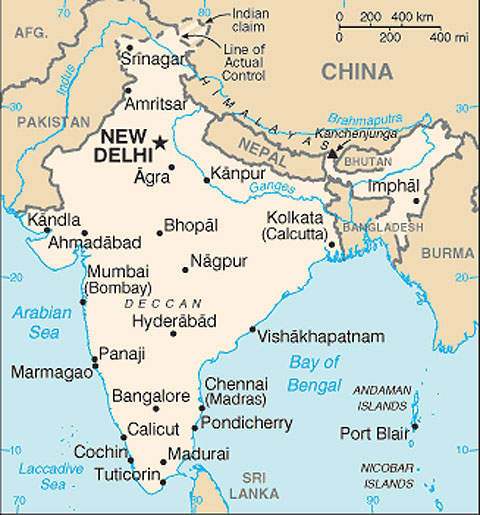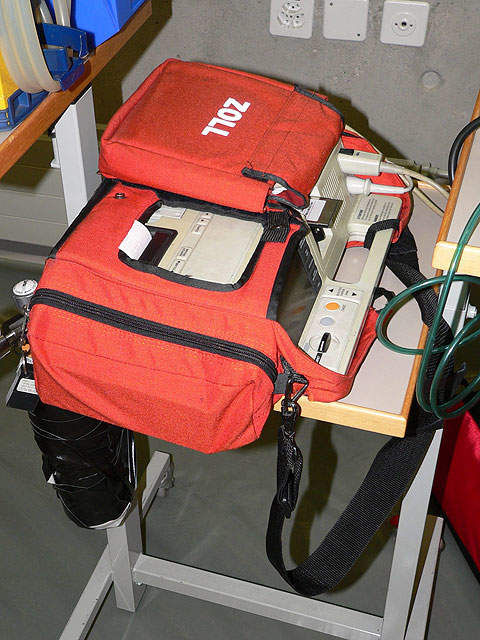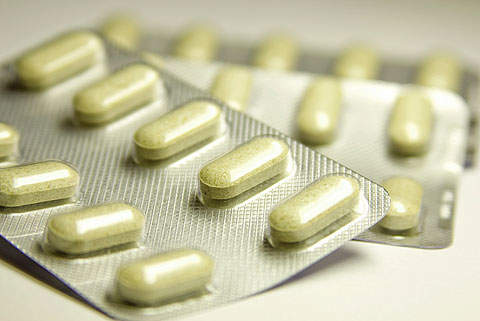GVK Biosciences, a contract research organisation based in the city of Hyderabad, India, operates a clinical pharmacology facility in the city. Opened in 2003 and commissioned in 2004, the facility provides clinical and bio-analytical services. It is one of the largest facilities in India for conducting bioavailability and bioequivalence studies. As of 2009, the facility had conducted more than 300 studies, out of which over 50 studies were for submission to the US FDA.
The facility has been accredited by the National Health Surveillance Agency (ANVISA, Brazil), AFSSAPS (France), the WHO and twice by the FDA. It was also audited by the Drug Controller General of India (DCGI) and the Ministry of Health, Turkey, in 2008.
GVK Biosciences’ clinical pharmacology facility
The facility has 144 beds accommodated within four large clinical wards. Two clinical wards are equipped with 40 beds, while another has 30 and the remaining ward has 34.
Each clinical ward is installed with a two-bed ICU, defibrillator-equipped crash cart, oxygen cylinder, nebuliser, cardiac monitors, ECG machines, mercurial sphygmomanometers, refrigerated centrifuges, glucometers for glucose monitoring and CCTV for activity monitoring. There is a fully equipped phlebotomy room that has been installed with eight stations. The unit also has a clinical examination room, a volunteer registration zone, a pharmacy and an archival facility to store the samples.
Equipment for bio-analytical services at the facility includes 13 Sciex LC/MS/MS instruments of API 2000, API 3000, API 3200 and API 4000 standards. There is one Quattro Premier XE, a mass spectrometer developed by Waters, one high-performance liquid chromatography detector (HPLC) with fluorescence and UV detectors, and freezers that operate at -80°C to -30°C for storing samples.
The facility houses a clinical pathology laboratory, which was accredited by the National Board for Testing and Calibration Laboratories (NABL) in 2008. The laboratory is installed with automated equipment, including a AU400 biochemistry random-access analyser by Olympus (for clinical biochemistry) and ABX Pentra 60c and Beckman coulter Ac.T 5diff haematology analysers (for haematology).
The laboratory also houses an ELISA reader for serology by Tecan and a Siemens urine analyser for clinical pathology.
Clinical pharmacology facility production
The facility assays drugs, metabolites and endogenous compounds from biological tissues. It undertakes method development and has a library of over 100 validated methods as of 2010.
Clinical services offered by the facility include the selection of a suitable study design, the preparation of protocol and informed consent forms (ICF), interaction with the Independent Ethics Committee (IEC), choosing the subjects, evaluation of statistical data and pharmacokinetics, preparation of an integrated report and secure archiving of study-related documents.
Ahmedabad clinical pharmacology facility
To support the activities at the Hyderabad-based facility, a new clinical pharmacology facility was launched in Ahmedabad, India, on 17 March 2010. Located at the Sarkhej-Gandhinagar Highway in Gujarat, the facility will conduct a range of studies on healthy candidates. It will undertake multiple studies, including dose escalation studies and food effect studies, to estimate the safety and efficacy of drugs and the effect of food on pharmacokinetics.
The facility will also support multiple dose / steady-state studies and urine studies, as well studies for injectables. The studies will either be of the pivotal, pilot bioavailability (BA) or pilot bioequivalence (BE) type.
The state-of-the-art facility accommodates 110 beds within three clinical wards. It includes special housing facilities for female volunteers. In addition to having access to a database of 12,000 healthy volunteers, the facility has been designed to provide access to special candidates, including young women and the diseased population in psychiatry, metabolism, cardiovascular and neurology.
The facility is proximal to ten contract research organisations, established pharmaceutical companies and a large pool of volunteers. As of May 2010, the first study at the facility had begun.





